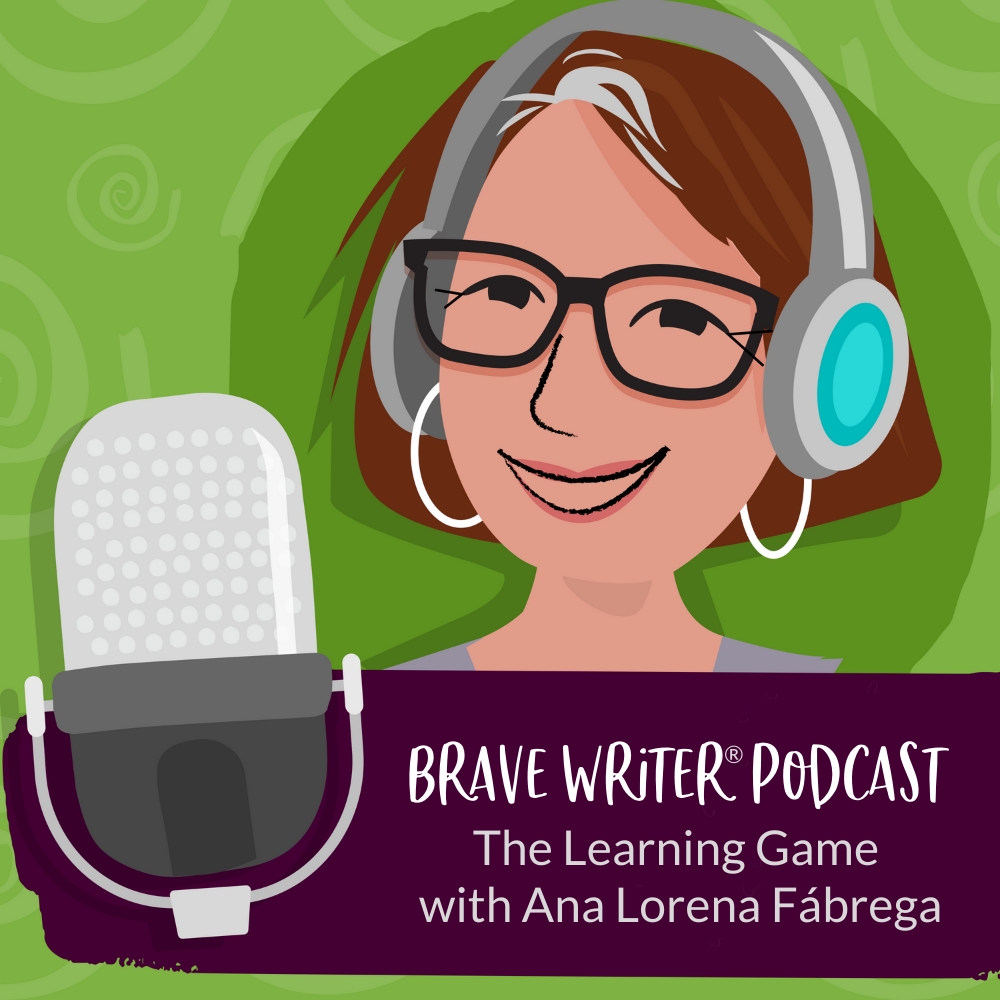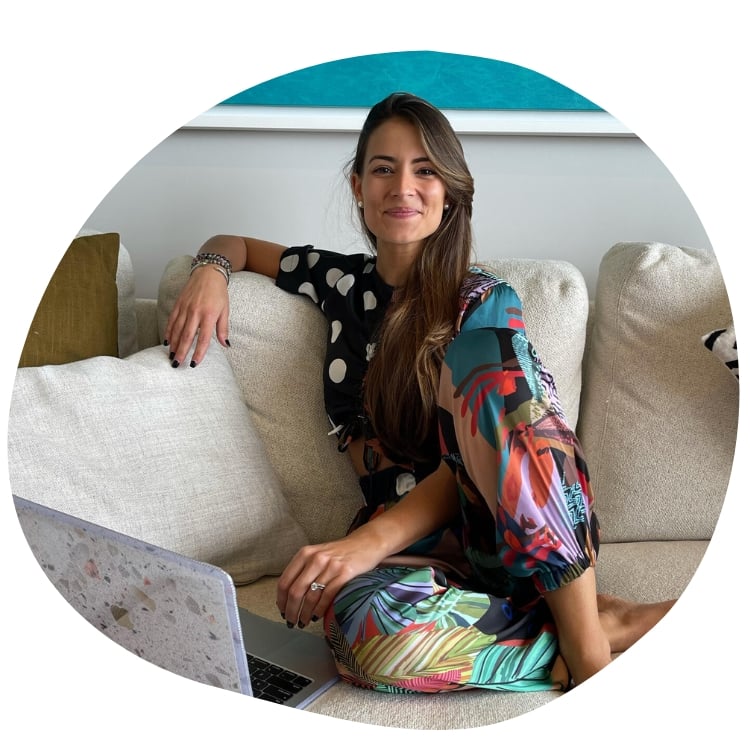[Podcast #227] The Learning Game with Ana Lorena Fábrega

There’s a big difference between “the game of school” and “the learning game.” Ana Lorena Fábrega picked this up as a kid when she went to 10 different schools by the time she was 15. She learned it again as an educator herself.
Today Ana joins us on the Brave Writer podcast to discuss her book, The Learning Game: Teaching Kids to Think for Themselves, Embrace Challenge, and Love Learning.
In this episode, we talk about:
- memorization vs. applied learning,
- “pointsification” vs gamification,
- testing culture vs. curiosity,
- and the importance of embracing confusion.
Show Notes
Applied Learning vs. Memorization
When Ana taught at a traditional school, every year she would have to re-study the material in order to teach her students, even though it was the same material that she had taught the year before. She realized that if she wasn’t retaining the information, her students weren’t either. That’s when Ana started to focus more of her lesson time on helping students apply concepts, rather than over-explaining the concepts and then expecting memorization.
“Pointsification” vs. Gamification
A lot of teachers use some kind of point system–if the class does a certain number of behaviors or achieves a certain academic milestone, they get a pizza party, or something like that. There’s nothing wrong with a good pizza party, but this kind of “pointsification” creates external motivation, which is powerful in the short term, but does nothing for long-term learning and understanding. On the flip side, using games to challenge students to grapple with concepts creates internal motivation and helps students really absorb what they have learned.
Testing Culture vs Curiosity
In today’s education system, standardized test scores reign supreme. Teachers, parents, and students stress year-round about test scores. That stress actually lowers the students’ ability to perform on tests. Even worse, the test-centered education design lowers students’ ability to learn. In her final year of teaching, Ana ignored test prep and instead cultivated her students’ innate curiosity. Ironically, that year her students excelled on their standardized tests, outperforming their peers.
Embracing Confusion
Confusion is part of problem-solving. A lot of times, intentionally or unintentionally, parents and teachers hide their confusion from their students. They want to seem like experts on every topic or in every situation. The problem is that this can lead to students thinking that when they experience confusion, they are doing something wrong. By modeling acceptance of confusion and patiently working through it, parents and teachers can reduce pressure on students and encourage them to take on challenges.
The bottom line of our discussion with Ana: Think like a videogame designer. Kids (and adults) don’t love video games because they are easy—they love them because they are challenging, hard to win, and packed with intrinsic motivation. Don’t be afraid to make your kids’ education the same way.
Resources
- Read Ana’s book: The Learning Game
- Follow Ana on Instagram: @MsFab_LearningLab
- Check out Ana’s website: AFabrega.com
- Sign up for our Text Message Pod Ring to get podcast updates and more!
- Send us podcast topic ideas by texting us: +1 (833) 947-3684
- Start a free trial of CTCmath.com to try the math program that’s sure to grab and keep your child’s attention!
- Good news: There are enough weeks left to do a writing project with your kids that will leave you feeling confident and accomplished this school year. Sign up for a Brave Writer online writing class. Our classes start every Monday, and each one only lasts three to six weeks. Sign up today!
Connect with Julie
- Website: bravewriter.com
- Instagram: @juliebravewriter
- Threads: @juliebravewriter
- Twitter: @bravewriter
- Facebook: facebook.com/bravewriter
Connect with Melissa
- Website: melissawiley.com
- Substack: melissawiley.substack.com
- Instagram: @melissawileybooks
- Twitter: @melissawiley
Produced by NOVA Media



















